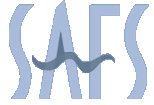UW Aquatic & Fishery Sciences Quantitative Seminar
Cameron Ainsworth
NOAA Northwest Fisheries Science Center
Atlantis Modelling of the Upper Gulf of California: EBM support for small-scale fisheries
Abstract
In collaboration with Mexican partners and US universities, NOAA is constructing a biogeochemical food-web model of the upper Gulf of California (Sea of Cortez) using the Atlantis modelling framework. The purpose of the study is to simulate and test various ecosystem-based management strategies for the upper Gulf to determine likely impacts on artisanal fisheries and conservation of marine resources. Of particular concern is the conservation of rare and endemic species such as the endangered Vaquita porpoise (Phocoena sinus) and the Sciaenid totoaba (Totoaba macdonaldi). We will also examine the influence of flow from the highly regulated Colorado River in structuring habitat and driving ecosystem dynamics with the aid of a coupled regional ocean model system (ROMS model). Numerous field studies are underway to provide original data for the Atlantis model. Efforts include trawl sampling, reef diving transects, stomach content analysis, otolith microchemistry, and community interviews. Other supporting studies include reconstruction of catch trends from port records and fishery log books, and reconstruction of biomass trends from local ecological knowledge interpreted using a fuzzy logic approach. Recommendations from this project will influence regional and species-specific management plans to be adopted by Mexican fishery authorities in the 2010-2012 time frame.

